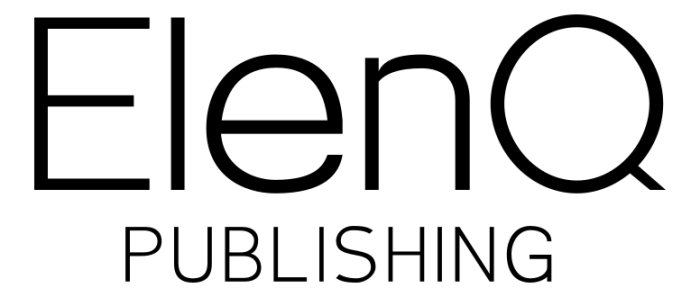Bijdragen € 5
Support the project
Help us fund our maintenance and publishing costs with 5€ or more.
Your name will appear in the project's official website.
> 03 Co-financiers
We use own and third party cookies to improve your user experience and our services, analyzing users' browsing in our website. If you continue browsing, we will consider that you consent to its use. You can get further information in our Cookies Policy
ElenQ Publishing

 Min.
Min.
 Opt.
Opt.
 Bilbao
Bilbao
Help us fund our maintenance and publishing costs with 5€ or more.
Your name will appear in the project's official website.
Physical edition of: What's informatics?
Worldwide shipping included.
If the optimum goal is reached, choose between English or Spanish
Physical edition of: Programming in Python
Worldwide shipping included.
If the optimum goal is reached, choose between English or Spanish
Physical edition of: What's informatics? + Programming in Python
Worldwide shipping included.
If the optimum goal is reached, choose between English or Spanish
Physical edition of: What's informatics? + Programming in Python
Worldwide shipping included.
If the optimum goal is reached, choose between English or Spanish
Physical edition of: Programming in Python (2 units)
Worldwide shipping included.
If the optimum goal is reached, choose between English or Spanish
Physical edition of: What's informatics? + Programming in Python (2 units of each)
Worldwide shipping included.
If the optimum goal is reached, choose between English or Spanish
Physical edition of: What's informatics? (10 units)
Worldwide shipping included.
If the optimum goal is reached, choose between English or Spanish
Physical edition of: Programming in Python (5 units)
Worldwide shipping included.
If the optimum goal is reached, choose between English or Spanish
Physical edition of: Programming in Python (10 units)
Worldwide shipping included.
If the optimum goal is reached, choose between English or Spanish
Accessible, free and ethical technical books
 Infrastructuur
Infrastructuur
|
Minimum | Optimum |
|---|---|---|
|
Printing and publishing
Printing and publishing costs of the books "What's informatics?" and "Programming in Python"
|
€ 500 | |
|
English translation
In order to enable future independent translations to different languages, a professional English translation service will be hired.
|
€ 1.000 |
 Taak
Taak
|
Minimum | Optimum |
|---|---|---|
|
Review and complete the contents
Review and completion of the books already designed.
|
€ 200 | |
| Totaal | € 700 | € 1.700 |
ElenQ Publishing is a book publishing initiative which goal is to empower people with high quality material, with free licenses (CC-BY-SA), accessible and in published in their own language.
As we believe everyone has the right to learn anything they want with no limitations, as we like to, it's our responsibility to make everything we can to make this possible
- Ekaitz Zarraga (ElenQ Technology)
Creative Commons - By - Share Alike license allows the content to be shared and improved. The goal is not only to create final contents, it's also to create a reliable source that encourage the creation of new contents with open licenses.
The books are going to be released in paper, web and easy-to-print digital format. Apart from that, we'll provide a version control repository with the contents in order to ease the edition and improvement of the content and the creation of new derivative projects.
Paper format is not required to achieve our goal but we consider it a key point because of the following reasons:
The paper format is going to be printed in a local eco-friendly print shop.
Philosophy of the contents is based on the idea of supporting autonomous learning and critical thinking. This is achieved focusing on the fundamental concepts rather than the details, providing a solid basis to build knowledge on top of. All contents provide references to allow the readers research further.
Physical books will be printed with a soft-cover in a B5 size, makes reading easier and allows the inclusion of examples while it keeps the price as lower as possible. The printing-friendly version is prepared for A4 format and it's designed to be easy to print and bind in any local copy shop for a affordably.
This document written by Giacomo Tesio and translated and adapted by Ekaitz Zarraga aims to describe what is informatics from its origins and create debate about the ethics around it and the current uses it has. This book serves as opening and statement of purpose of the whole collection because Giacomo's ideas match perfectly the goals of ElenQ Publishing even if they were developed independently.
The estimated length of the book is between 50 and 100 pages in the printing format.
Written by Ekaitz Zarraga for his courses, this book is a Python programming manual that also describes general programming theory.
This book has been successfully tested in its previous versions on training courses but, before publishing it for general public it must be improved with some changes that encourage and ease autonomous learning, like exercises, footnotes and deeper explanations due to the lack of in-person classes that filled that gap during the courses.
The current content of the book exceeds 100 pages in A4 format before the rework. Once converted to B5 for the physical edition and with the extra content added it surely exceed 200 pages.
In the minimum goal of the project contents will be released in Spanish because it is the mother tongue language of the main author and reviewer, Ekaitz Zarraga,
The optimum goal of the project is the translation of all the contents to English. Even if one of the goals of the project is to fight against the tendency to publish all technical books in English, due to its wide use, the English translation will allow other translations to happen. English can serve us as a vehicle to reach people that know languages we do not and are able to translate the contents to them.
On the other hand, the author and reviewer is able to speak English quite comfortably and that lets him guide a translation team more accurately and paying attention to the technical terminology.
Since de end of the campaign, the team will need around four months to publish the contents and send the rewards. The estimated delivery date is really conservative because the everyday work can stall the project and external factors like printing and translation might influence the delivery date.
The project's goal goes further than the publishing of these specific books. Some other books are planned like a detailed description of the World Wide Web, and others are waiting to be researched.
Translation to other languages are also planned and the publishing of independent translations is also a possibility.
This project's goal is to provide good quality material for anyone interested on learning informatics. The goal is not to make a collection of books for dummies, instead, it tries to create high level technical books that are accessible for anyone.
Understanding accessiblity as the lack of legal, economical, linguistic or functional limits that usually appear in these contexts we, as self-taught people and educators, faced in many occasions:
We think all those problems have easy solutions with a low investment.

Telecommunication Engineer (Electrical and Electronic Engineer equivalent in Spain), founder of ElenQ Technology, an ethical R&D project that focuses on free and accessible knowledge. Apart from his job as an R&D Engineer at ElenQ Technology where the self-directed learning is key, Ekaitz worked as an educator in several contexts: technical courses for workers, advanced courses for research centers, government-funded courses for unemployed people, etc. All of them in the area of Computer Science and IT (data analysis, advanced programming, web-scraping, blockchain, etc.)


Accessible technical publications are key for a fairer society.
Allowing authors from different linguistic and social contexts to publish in their own language diversifies technical publications and provides them with the cultural and opinion richness they currently lack: this carries a new conception of technology, a new way to think about how technology is created, etc. that facilitates access to technology for people that were excluded from it (underprivileged classes, women, people with disabilities...)
Publishing in different languages allows people who did not have the chance to learn foreign languages to access technology: knowing an specific language should not be a mandatory condition to access any kind of knowledge, it only serves as a way to exclude underprivileged people from knowledge.
Society that has access to knowledge is more demanding with it: it demands transparency, equality and respect. An ignorant society is easy to manipulate and silence. Knowledge is key to democracy.
Access to knowledge reduces inequality. Open knowledge is a trampoline for those who have no access to high-level education system because of structural or economical reasons.
Free knowledge eases the invention of technologies made from people that needs them.
Technical publications with Creative Commons licenses complement education system: support it with solid references that can be improved and adapted to the interests of the teacher.
Support the project
Help us fund our maintenance and publishing costs with 5€ or more.
Your name will appear in the project's official website.
> 03 Co-financiers
What's informatics?
Physical edition of: What's informatics?
Worldwide shipping included.
If the optimum goal is reached, choose between English or Spanish
> 05 Co-financiers
Programming in Python
Physical edition of: Programming in Python
Worldwide shipping included.
If the optimum goal is reached, choose between English or Spanish
> 07 Co-financiers
LIMITED: What's informatics + Programming in Python
Physical edition of: What's informatics? + Programming in Python
Worldwide shipping included.
If the optimum goal is reached, choose between English or Spanish
> 10 Co-financiers
What's informatics + Programming in Python
Physical edition of: What's informatics? + Programming in Python
Worldwide shipping included.
If the optimum goal is reached, choose between English or Spanish
> 08 Co-financiers
Programming in Python x 2
Physical edition of: Programming in Python (2 units)
Worldwide shipping included.
If the optimum goal is reached, choose between English or Spanish
> 02 Co-financiers
LIMITED: (What's informatics + Programming in Python) x 2
Physical edition of: What's informatics? + Programming in Python (2 units of each)
Worldwide shipping included.
If the optimum goal is reached, choose between English or Spanish
> 02 Co-financiers
What's informatics? x 10
Physical edition of: What's informatics? (10 units)
Worldwide shipping included.
If the optimum goal is reached, choose between English or Spanish
> 01 Co-financiers
Programming in Python x 5
Physical edition of: Programming in Python (5 units)
Worldwide shipping included.
If the optimum goal is reached, choose between English or Spanish
> 00 Co-financiers
Programming in Python x 10
Physical edition of: Programming in Python (10 units)
Worldwide shipping included.
If the optimum goal is reached, choose between English or Spanish
> 00 Co-financiers
Translation to other languages taking as source the Spanish or the English version.